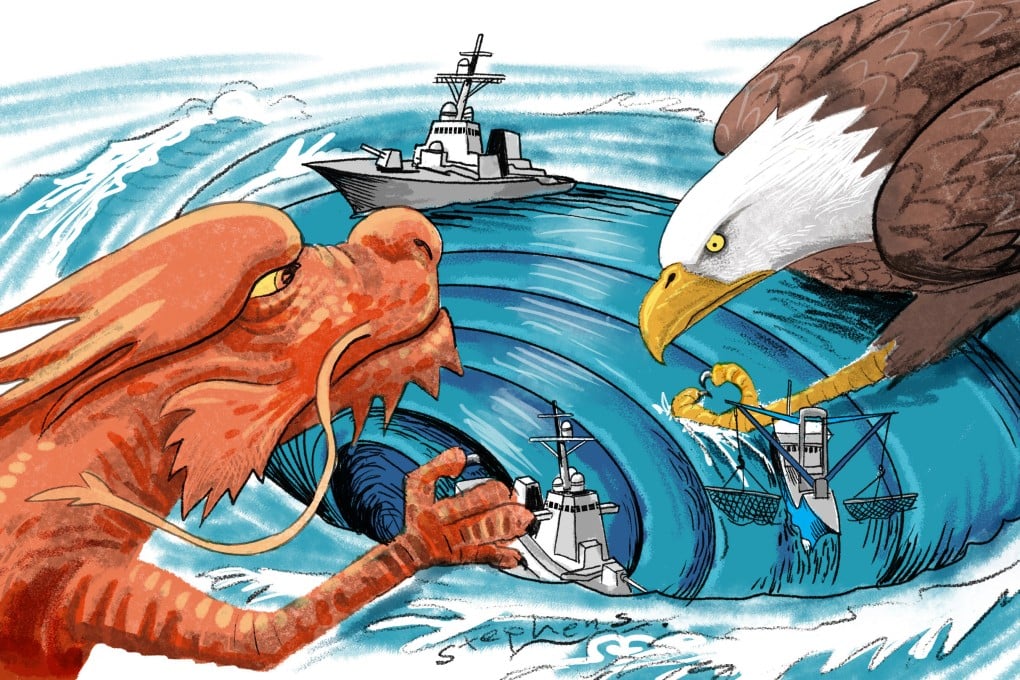Advertisement
Opinion | South China Sea: US-China confrontation looms large
- Chinese assertiveness towards the Philippines in the disputed South China Sea is risky, as the US has vowed to defend Philippine troops and vessels
- More than ever, Washington and Beijing should tread carefully around potential hotspots such as the Second Thomas Shoal, Scarborough Shoal and Taiwan
Reading Time:4 minutes
Why you can trust SCMP
63

The dust is still settling after a whirlwind of high-level meetings featuring China, the US and Asean that discussed South China Sea issues. Do those discussions and related developments portend a leaking status quo or a backslide into confrontation?
While members of the Association of Southeast Asian Nations may still have some agency if they can find a clear common voice, the South China Sea issues are mainly driven by the race between China and the United States for hegemony in the region.
And how bad is the situation? In July, China’s President Xi Jinping told US elder statesman Henry Kissinger that US-China relations were at a crossroads. Some think the US, with its telling military movements, is preparing for war with China. And yet, when the Asean summit wrapped up in Jakarta earlier this month, the joint statement did not even mention the South China Sea disputes.
At the East Asia Summit that week, President Joko Widodo of host nation Indonesia appealed to participants – including China, the US and other non-Asean interlocutors – to ease tensions. “Everyone in this room has the same responsibility to not create new conflict, to not create new tension, to not create new wars,” he said. “At the same time, we have the responsibility to lower heated tensions, to thaw frozen state of affairs, to create room for dialogue, to bridge existing differences.”
While in Jakarta, representatives of China, the US and Asean members met separately in various configurations. In recent months, senior US officials such as Secretary of State Antony Blinken, National Security Adviser Jake Sullivan and CIA director Bill Burns have also met their Chinese counterparts.
The fact that US-China meetings are even taking place at this level has led some to declare progress in bilateral relations. But this is to cling to straws in the political whirlpool threatening to swallow the region. Indeed, recent developments – including tit-for-tat naval shows of force by China and the US – seem to indicate the opposite of progress, or at least a dangerously leaking status quo.

Advertisement
